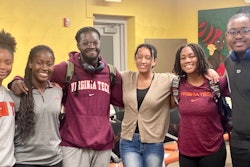There is considerable research generated about African Americans in higher education, specifically faculty. In fact, most studies concerning African Americans have focused on the retention of students or faculty (Wolfe & Dilworth, 2015). Yet there is little research on the underrepresentation of African American community college trustees. While much of the existing research suggests that increasing the number of faculty and administrators of color clearly has a positive effect on educational quality and student achievement (Fujimoto, 2012), the reality is that trustees can have a greater impact on policy, strategic goals, and eventually can lead the most dramatic change of vision within our institutions.
 Carl B. Smalls
Carl B. Smalls
Having an advocate or mentor is critical
We found that the presence of a mentor in the life of the trustee was critical to the participants’ successful selection or election as trustee. For some, it was a political figure, for others, it was a local businessperson, or board colleague. Regardless of the mentor’s profession, what was obvious was that the participants had someone coaching, advising, or guiding them and networking on their behalf.
Community or public service experience was essential
Having community or public service experience was more important than one’s political affiliation. Research revealed that all but one of these award-winning colleges had a board-influenced diversity, equity, and inclusion (DEI) mandate. The research demonstrated that valuing those not like you cannot be forced and must become part of the culture of the college if we are to achieve true equity and inclusion. Trustees reported their college also broadened the definition of diversity to include opinions. We noted a commonality among all the participating trustees was that it did not matter how one defined underrepresentation, the institutional system (or process) would protect the system rather than diversify trustees, leadership, or faculty. Additionally, trustees had become leaders in the quest for equity and were informed advocates for all experiencing marginalization. Their colleges are leading the way, openly sharing models that embed diversity, equity, and inclusion.
Recommendations for practice





















